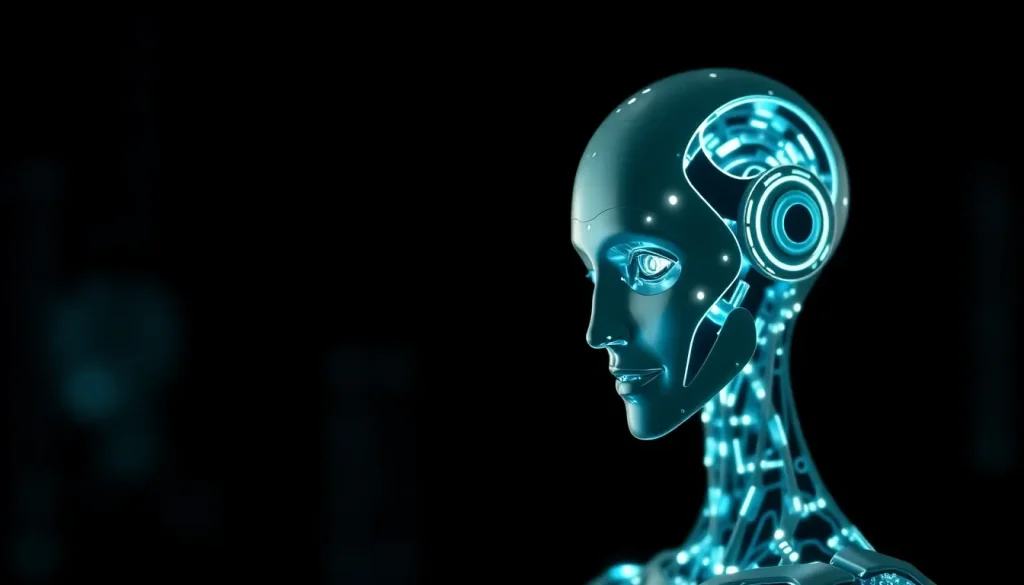OpenAI CEO predicts general AI will handle 40% of jobs by 2030

The rise of artificial intelligence (AI) has ushered in a profound transformation across various sectors, generating excitement and concern alike. As we navigate through this technological evolution, the implications are vast, particularly regarding employment. With forecasts suggesting that AI could handle a significant portion of jobs by 2030, it's crucial to explore the insights of key figures in the field, like Sam Altman, CEO of OpenAI. His predictions not only highlight the potential of AI but also raise questions about the future of work and how individuals can prepare for these changes.
As we delve into the future of AI, understanding its current trajectory and the expectations for its capabilities is essential. From improving productivity to automating complex tasks, AI is set to redefine the workplace landscape. In this article, we will explore Sam Altman's predictions regarding the impact of AI on jobs, how individuals can adapt to these changes, and what the future may look like as AI continues to evolve.
- Sam Altman predicts AI will handle 30-40% of jobs by 2030
- The role of artificial general intelligence (AGI) in the future
- Advice for future generations: adaptability is key
- The implications of AI on various job sectors
- How companies can prepare for the AI revolution
- Exploring the future of AI through expert insights
Sam Altman predicts AI will handle 30-40% of jobs by 2030
In recent discussions, Sam Altman has made significant claims about the future of the workforce in relation to AI technology. He has indicated that by 2030, AI might be responsible for 30-40% of jobs within the economy. This forecast paints a picture of a world where AI systems are not just tools but integral components of various industries.
Since the early days of generative AI, there has been widespread speculation about its potential to replace human jobs. Some roles, particularly in customer service, are already experiencing shifts as AI systems can seamlessly operate around the clock. The following are areas where AI is expected to have a considerable impact:
- Customer support automation
- Data analysis and interpretation
- Content creation across various mediums
- Programming and software development
- Logistics and supply chain management
Altman has also acknowledged that while some jobs will inevitably be replaced, new roles will emerge as a result of AI advancements. For instance, sectors such as healthcare may see an increase in demand for roles that require human empathy and complex decision-making, areas where AI may not excel.
The role of artificial general intelligence (AGI) in the future
According to Altman, the anticipated arrival of Artificial General Intelligence (AGI) could revolutionize our understanding of intelligent machines. AGI is theorized to possess the ability to learn and adapt autonomously, performing tasks traditionally done by humans. This would represent a significant leap from current AI capabilities.
Altman asserts that by 2030, we may witness the development of AGI that can:
- Understand complex concepts across various domains
- Adapt to new challenges without extensive retraining
- Execute tasks with human-like proficiency
The implications of AGI are vast, suggesting that many jobs may become obsolete. However, Altman also emphasizes the importance of establishing frameworks to ensure that the development of AGI remains beneficial to humanity.
Advice for future generations: adaptability is key
In a recent interview, Altman shared insights on how he advises his son to prepare for a future dominated by AI. His key recommendations include:
- Embrace a mindset of continuous learning
- Develop adaptability to navigate changes
- Focus on resilience in the face of challenges
- Create valuable products and services that meet evolving needs
These principles underscore the importance of being proactive and open-minded. As AI continues to evolve, individuals who are adaptable and willing to learn will be better positioned to thrive in a rapidly changing job market.
The implications of AI on various job sectors
As AI technology advances, its impact will vary across different sectors. Understanding these effects can help individuals and organizations prepare for the future. Here are some sectors likely to experience significant changes:
- Healthcare: While AI may assist in diagnostics and treatment recommendations, roles requiring human empathy, such as doctors and therapists, remain irreplaceable.
- Finance: AI can automate tasks such as data analysis and fraud detection, but financial advisors will still be needed for personalized guidance.
- Manufacturing: Automation will continue to streamline production processes, but skilled workers will be essential for oversight and maintenance.
- Education: AI can enhance personalized learning experiences, but human instructors play a critical role in fostering social and emotional skills.
- Creative fields: While AI can assist in generating content, the unique human touch in art, writing, and design remains invaluable.
How companies can prepare for the AI revolution
Organizations must adapt to the impending changes brought by AI to remain competitive. Here are some strategies companies can implement:
- Invest in employee training and reskilling programs to prepare for new technology.
- Incorporate AI tools to enhance productivity and efficiency.
- Foster a culture of innovation that encourages experimentation with new technologies.
- Prioritize ethical considerations in AI deployment to ensure responsible use.
By taking proactive steps, companies can not only survive but thrive in an AI-driven landscape.
Exploring the future of AI through expert insights
To gain a deeper understanding of the potential future of AI and its implications, many experts have shared their insights through various platforms. One notable perspective comes from a recent video featuring Sam Altman discussing the evolution of AI. This video encapsulates the transformative nature of AI and provides a glimpse into what lies ahead. You can watch it here:
As we approach the future, the collaboration between humans and AI will be crucial in shaping a world where technology complements human capabilities rather than replaces them. The insights from thought leaders like Sam Altman remind us of the importance of preparation and adaptability in the face of change.




Leave a Reply